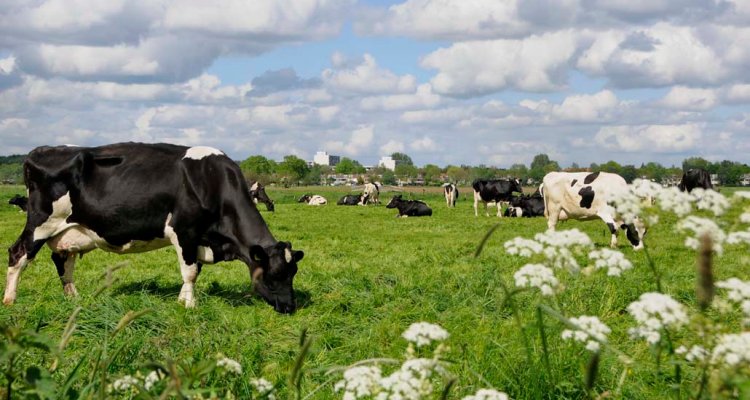
Projects and publications by Wageningen Livestock Research
We work for a broad range of clients. We advise and guide you in business processes and complex issues surrounding sustainable livestock farming.
Current projects
-

The effect of dietary protein on health in dairy cows
December 1, 2022 - By Axel van Ruitenbeek -
Creating resilience in pigs through artificial intelligence
October 15, 2022 - By Mahsa Mohseni -

Automated broiler phenotyping
April 1, 2022 - The project aims to identify, upscale and implement technologies for automated individual broiler phenotyping to improve the currently recorded and novel phenotypic traits related to health, welfare and performance. Through extensive collaboration with broiler breeding practice and technological partners, we dedicate ourselves to research towards full practical implementation. -
Microbiome in relation to CH4 and NH3 emissions
January 1, 2022 - Reduction of methane emissions can be achieved through an integrated feed and animal-oriented approach. Enteric methane production is largely influenced by feeding strategies and by control of the (rumen) microbiome. This project plan investigates the microbiome track and its influence through animal management. -

Resilient Agriculture for Inclusive and Sustainable Ethiopian food systems (RAISE-FS)
September 1, 2021 - The four-year Resilient Agriculture for Inclusive and Sustainable Ethiopian Food Systems programme (RAISE-FS) is aimed to bring about transformation in the Ethiopian food system. RAISE-FS will develop and implement a demand-driven and interdisciplinary approach to Research for Food System Transformation and as such contribute to the Government of Ethiopia’s transformational agenda. -

Pro-ARIDES project aims at increased resilience and economic development of Sahel region
January 1, 2021 - The ten-year Pro-ARIDES project (2021-2030) is designed to contribute to increased resilience, food security and household incomes for farmers and (agro) pastoralists in the Sudano-Sahelian zone of Burkina Faso, Mali and Niger. It is funded by the Dutch Ministry of Foreign Affairs and executed by SNV, CARE-Nederland, Wageningen University & Research and KIT Royal Tropical Institute. -

mEATquality
January 1, 2021 - Sub-programme 1 (Safe primary production (food and environment)): the project identifies food safety risks and maps them with an integrated QACCP approach. In addition, WU will conduct a sensitivity analysis with regard to food fraud by means of interviews with, among others, meat processors and retailers that use the SSAFE tool. Sub-programme 2 (Improving animal health and welfare): the central question is how extensive farming can provide welfare improvements for pigs and broilers. The effects of local feed production, space, breed and pen enrichment are measured in relation to, among other things, the development of resilient animals and best practices. Sub-programme 3 (Integral sustainability of livestock farming): the ultimate goal is integrally sustainable farming systems. Technical information, best practices, economic consequences (for a clear substantiation of the revenue model) and information for consumers to enhance the social dialogue are developed. -

REFOOTURE - Food Futures Eastern Africa
July 1, 2020 - Towards regenerative, inclusive food systems in Eastern Africa. -

Relationship between microbiome and genetics
January 1, 2020 - What is the relationship between the composition of the rumen microbiome and the cow's genetics? The integrated approach to methane and ammonia in dairy farming, with the aim of implementing the targeted reductions in 2030, means that for the ration, the entire chain of measures and practices to arrive at a ration (ensilage, grassland management, grass harvesting, quality, grazing, fertilisation, etc.) must be investigated. The effects of this in practice will be tested on pilot farms and demonstrated on demo farms so that action perspectives can be given to farmers. -

Breeding livestock to control methane
January 1, 2020 - The livestock sector is faced with the challenge of drastically reducing its methane emissions. Most methane emissions in livestock farming originate from cattle, and several strategies are available to reduce these emissions. One of these strategies is targeted breeding. A study funded by the Topsector Agri and Food, in collaboration with FrieslandCampina and CRV (cattle breeding cooperative), is investigating whether methane emissions of individual animals can be reduced through a targeted breeding programme.
Recent publications
Via Staff Publications it is possible to search for most recently added publications of Wageningen Livestock Research.